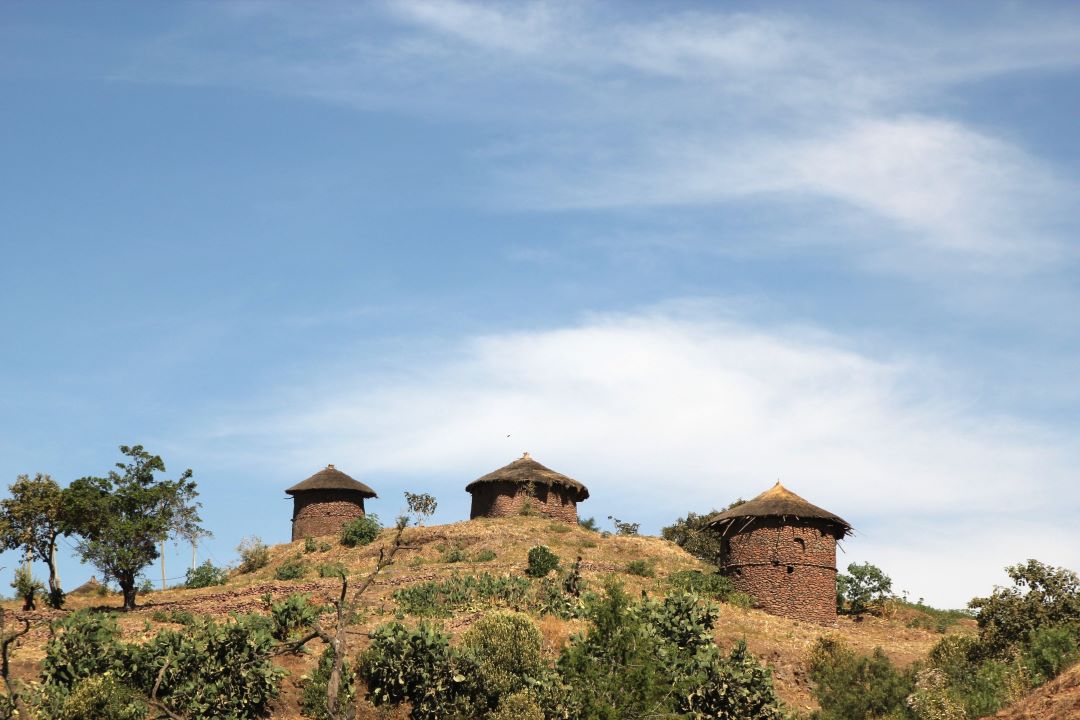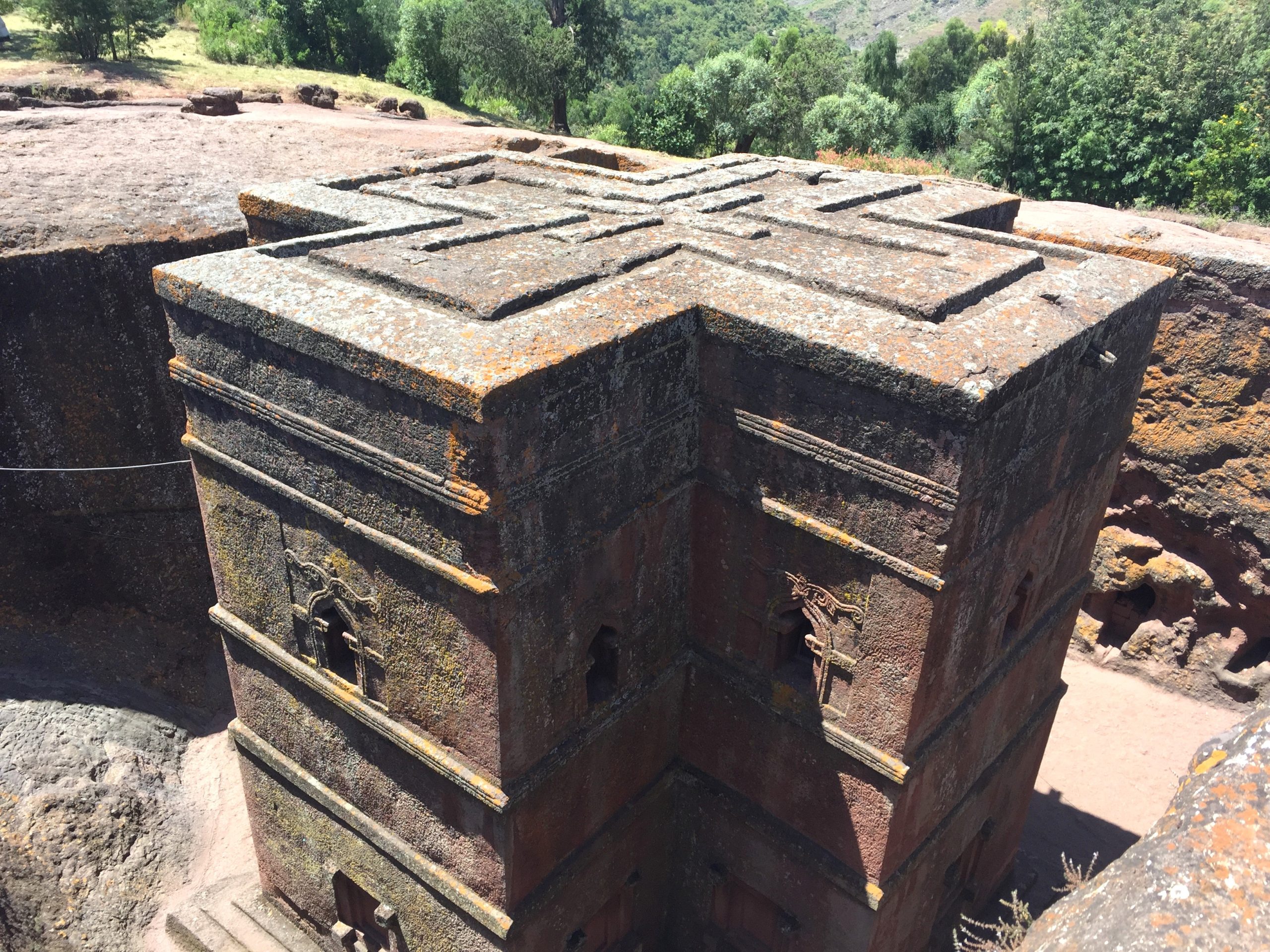
Amba Yohannes basaltic scoria quarry in Lalibela, Ethiopia
Year designation
Lithology
Aesthetics
Geological settings
Oligocene-Miocene
Location
Lalibela, Ethiopia
Amba Yohannes basaltic scoria quarry in Lalibela, Ethiopia
The basaltic scoria churches are carved into
The Lalibela Basaltic Scoria has been used to rock-cut churches and two-storey round huts in Lalibela. But the most historically significant structures that are made from the Lalibela Basaltic Scoria are the eleven rock-cut churches of Lalibela. The churches were carved in the early medieval times and are considered a holy site in the Ethiopian Orthodox church. Their method of construction is quite unique as all eleven structures are excavated into the ground. The churches are found interconnected via trenches and underground pathways. Skilled carvers took advantage of areas where this stone naturally outcropped and cut into it to design churches, ditches, trenches, canals and monuments. This unique mode of construction of the world heritage complex makes it an important example of rock-cut architecture in Ethiopia.
The rock-cut churches have historical significance in addition to their religious and architectural value because they are among the rare surviving material evidence of Ethiopia’s Zagwe period. A monarch of the Zagwe dynasty constructed the churches during the transitional period between the Axumite (1st–10th century) and Solomonic
(13th–20th centuries) empires, which both lasted far longer and produced a greater body of architectural works than the Zagwe period.
- Author(s)
Blen Taye, ARCHES research group, 31 Mustaardstraat, Antwerp 2000 & Fkereselase Sifir, World Monuments Fund, Addis Ababa, Ethiopia

